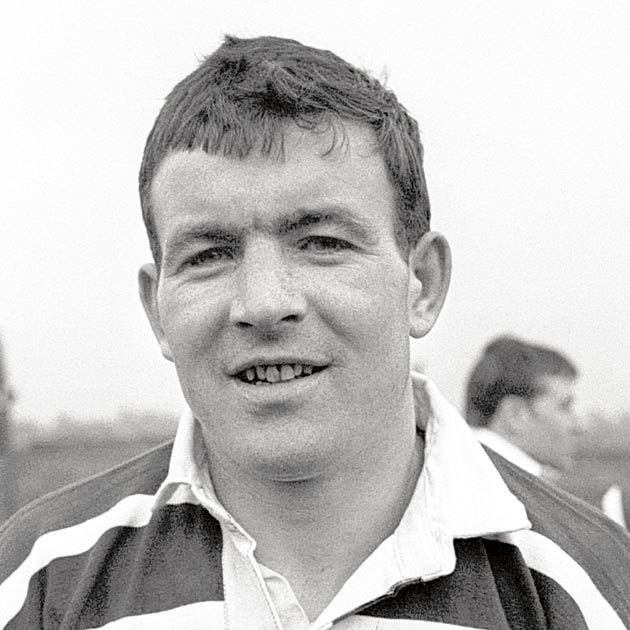Carl Dooler: Scrum-half whose skills took Featherstone to victory in the 1967 Challenge Cup final

The former mining village of Sharlston, tucked between Wakefield and Featherstone, is a rugby league hotbed that makes others look tepid by comparison.
The tiny community and its 125-year-old amateur club have produced a steady stream of players who have thrived in the professional game, including one of its first real superstars, Jonty Parkin, and, quite remarkably, three winners of the Lance Todd Trophy as man of the match in the Challenge Cup final at Wembley. Two of them were the Fox brothers, Neil and Don. The third was Carl Dooler.
That was in 1967, when Dooler was the scrum-half in the Featherstone Rovers side that won the Cup for the first time – itself a major achievement for an overgrown village. Featherstone had lost there to Workington Town in 1952 and had been to five semi-finals since. In 1967, they beat Bradford, Wakefield, Castleford and Leeds to set up a final against the favourites, Barrow.
Dooler emerged as the key figure that day at Wembley. Rovers were trailing 7-2 when his clever pass sent Arnie Morgan in for a try. Just after the half-hour, he put over a drop-goal that gave them a lead they were never to lose. In the second half, he secured victory with a break from dummy half that took him past two defenders, before turning the ball inside for Tommy Smales to score and for Featherstone eventually to win 17-12.
Dooler had been clearly the best player on the pitch. Tom Ashcroft wrote in The Rugby Leaguer that "Dooler first fulfilled the scrum-half's main function by keeping the back-line on the move. He had his flashes of inspiration with the drop-goal and the making of a try and when his side was in control he turned to the unorthodox with some clever back-flip passes."
Dooler had joined Featherstone – from Sharlston Rovers, naturally – in 1960, but found his early first-team opportunities limited by Don Fox's grip on the scrum-half shirt. Despite that he was selected for Yorkshire in 1962 after only 16 senior games, when Fox was injured. He had good games against both Cumberland and Lancashire, leaving Rovers with an embarrassment of riches in the position. The problem was resolved when Fox moved to loose-forward, leaving Dooler as first-choice scrum-half until 1968.
Apart from his great day at Wembley, his tenure included a Yorkshire Cup final, in which he was sent off and later exonerated, too late to save Rovers from defeat by Hull KR.
In 1966, his form was good enough to earn him a place on the Great Britain tour to Australia and New Zealand. He played 15 matches and scored five tries, but the sparkling form of Tommy Bishop kept him out of the Test team; the closest he came to playing for his country was as an unused substitute in Auckland.
Two years later, he was transfer-listed by Featherstone after a dispute and, after 199 games and 62 tries, sold to Hull KR for £6,500. A back injury forced him to retire at the end of that season, but he made a surprise comeback with York in 1973 and played a handful of games with Batley the following year.
He later settled in the North-east, where he worked as a rigger, but his previous jobs had, almost inevitably, included working at the pit in Sharlston, the village where he is remembered as one of the great carriers of a proud rugby league tradition.
Carl Dooler, rugby league footballer: born Sharlston, Yorkshire 30 March 1943; twice married (one son, one daughter); died North Shields, Tyne and Wear 29 July 2010.
Join our commenting forum
Join thought-provoking conversations, follow other Independent readers and see their replies
Comments
Bookmark popover
Removed from bookmarks